Results
-
£102.99
Can You Read My Mind (From Superman) - John Williams
Superman is undoubtedly one of the most legendary films of all time. The many sequels, the TV series and the splendid film score made "Superman" an absolute "cult series". Steven Verhaert has made a splendid arrangement of the well known love theme from the first film.
Estimated dispatch 7-14 working days
-
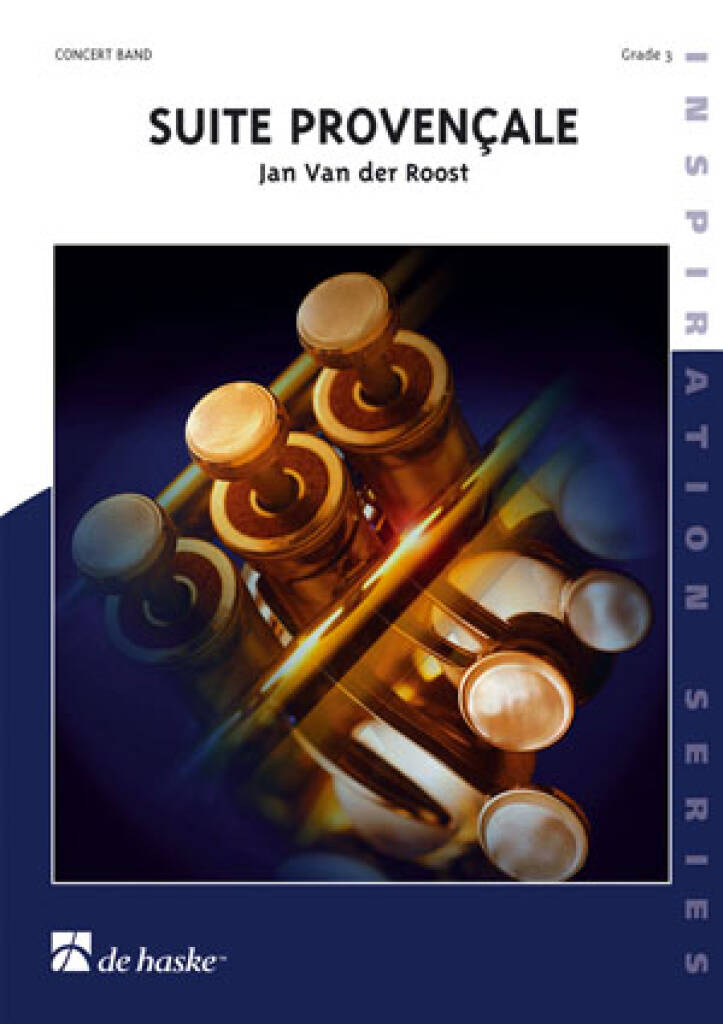 £149.99
£149.99Suite Provenale - Jan Van der Roost
This 4-movement suite is based on authentic folktunes from the beautiful southern province in France: the "Provence". The composer used an harmonic language respecting the popular characteristics, but on the other hand also contains some "spicy" notes (... just like the wellknown "Provenal sauce"! ...). The instrumentation is very colourful, paying a lot of attention to the different timbres of both brass and wood winds as well as to the percussion section.Every movement has its own character: "Un Ange a fa la crido" (= An angel brought the creed / credo) is like a bourre, "Adam e sa Coumpagnou" (= Adam and his companion) is an old love song, "Lou Fusti" (= the carpenter)a fast dance and finally "Lis Escoubo" (= a whistle tune / popular ballad) is a farandole. In the latter, the old tradition of folk musicians who play a whistle with one hand and a drum with the other hand, is clearly represented during the first presentations of the one and only theme)Although this piece is not too demanding, a well balanced band is necessary to perform it successfully. Thanks to the contrasts and the varying colours, it keeps on holding the attention.
Estimated dispatch 7-14 working days
-
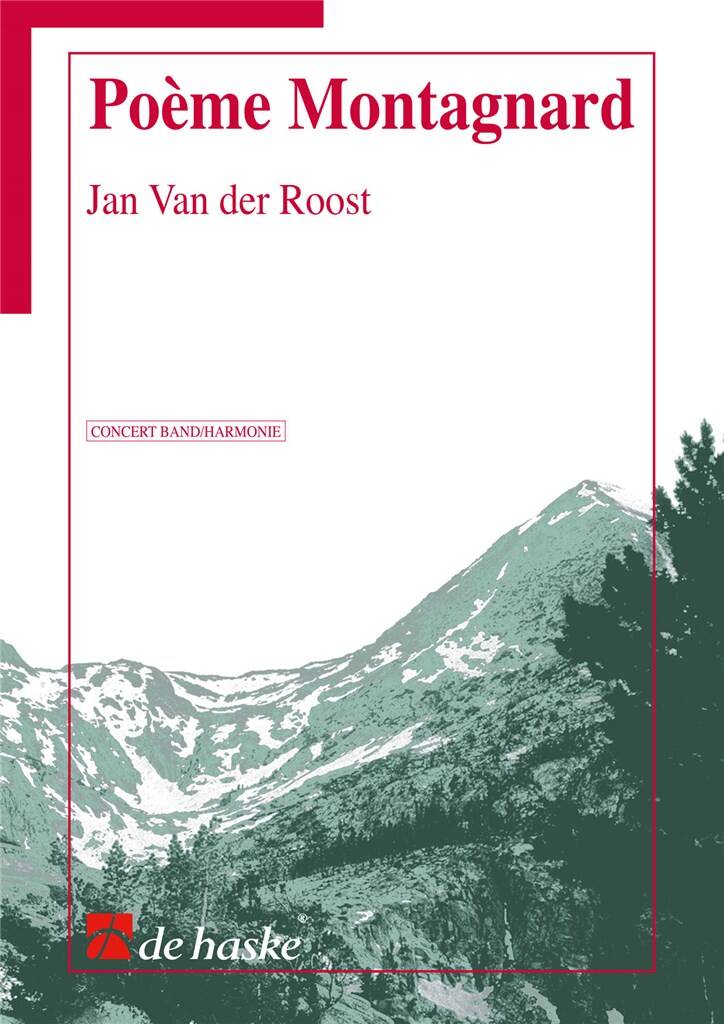 £264.99
£264.99Pome Montagnard - Jan Van der Roost
Jan Van der Roost received the commission for this work from the 'Orchestre d'Harmonie du Val d'Aoste' and dedicated the composition to Lino Blanchod, the conductor of the orchestra. The first performance was on 26th January 1997 by the orchestra itself and under the direction of the composer. This extensive symphonic poem depicts the atmosphere and history of the autonomous French speaking region 'Val d'Aoste' in northern Italy, and is meant as a musical homage to the historical figure Cathrine de Challant.The opening of this piece describes the rugged nature of this region dominated by Mont Blanc, the roof of Europe. A brief, combative passage conjures up the numerous warsfought here through the ages, later expanding into a surprising 'Renaissance Dance' with an original and fitting recorder quartet. A broad, lyrical theme portrays the love that has always played an important role here. After recapturing several of the earlier themes, the piece closes with the renaissance dance, this time played by the brass. A spectacular finale brings this symphonic poem to a close.
Estimated dispatch 7-14 working days
-
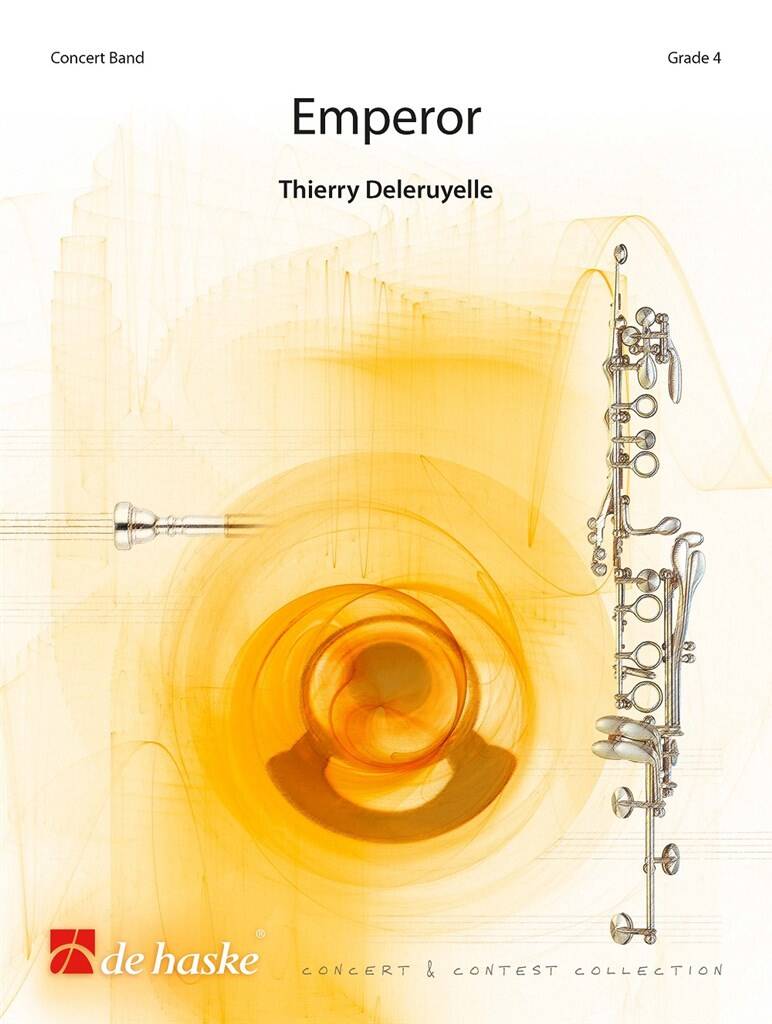 £159.99
£159.99Emperor - Thierry Deleruyelle
With Emperor, French composer Thierry Deleruyelle wanted to create a descriptive musical work depicting the life of Napoleon Bonaparte. The first movement represents the idiosyncrasies of this famous personality as well as his dramatic mood swings. The second movement is dedicated to his great love, Josephine Beauharnais. A contrasting third movement depicts Napoleon the fearless general and the countless battles he waged. A truly powerful work about one of histories truly powerful men.
Estimated dispatch 7-14 working days
-
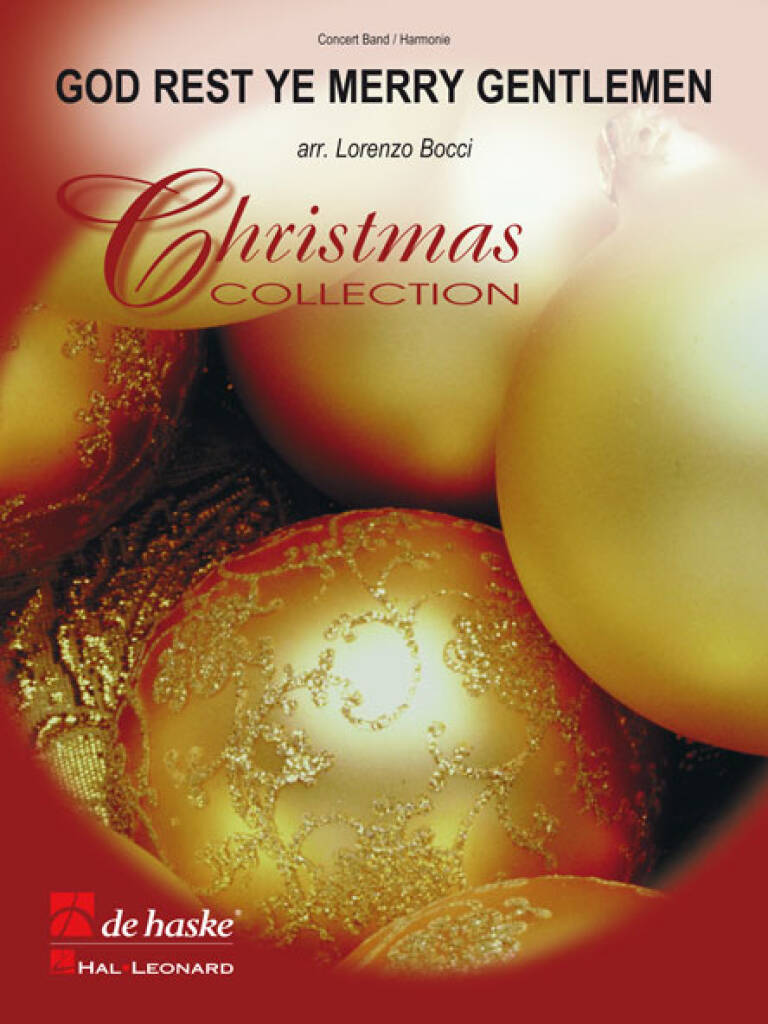 £76.99
£76.99God Rest Ye Merry, Gentlemen
God Rest Ye Merry Gentlemen appeared in print for the first time in William Sandys Christmas Carols Ancient and Modern in 1833, although it was believed to have been written many years earlier. Today, God Rest Ye Merry,Gentlemen is one of the most loved and popular English Christmas songs of all time. Italian composer and arranger Lorenzo Bocci fell in love with the delightful melody and created an arrangement that will be perfect at any Christmas concert orevent.
Estimated dispatch 7-14 working days
-
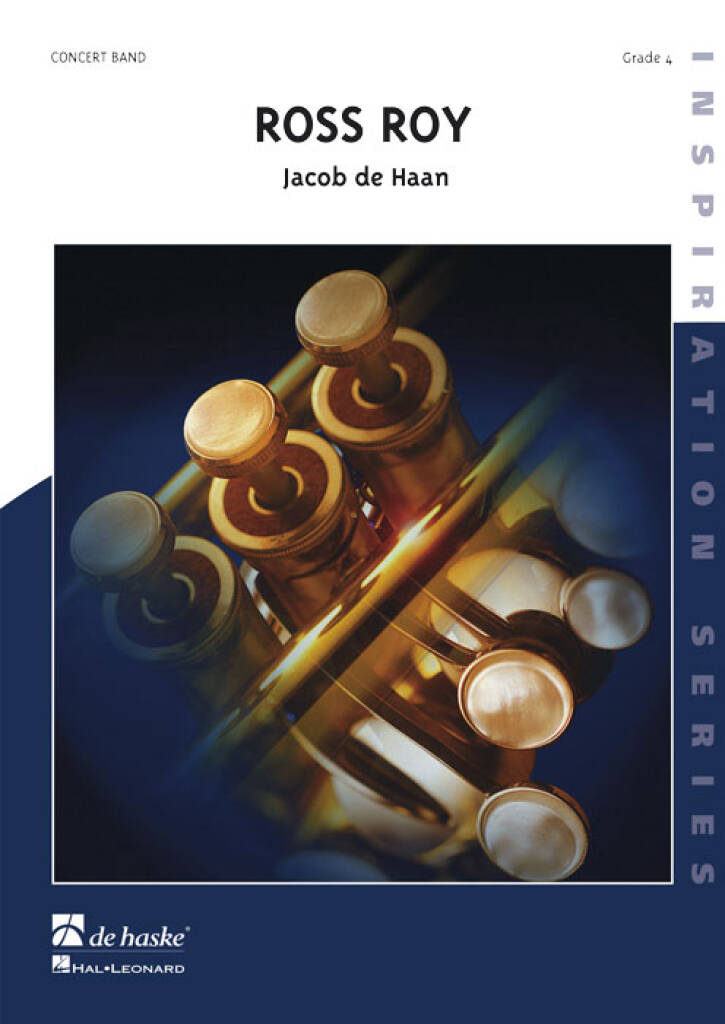 £144.99
£144.99Ross Roy - Jacob de Haan
Jacob de Haan was commissioned to compose this concert piece by the "St. Peters Wind Symphony" from Brisbane, Australia. "Ross Roy" is the monumental late 19th century villa where St. Peters Lutheran College was founded in 1945. The villa has always remained the school symbol. In this composition, Jacob de Haan sees the "Ross Roy" as a metaphor for the years spent at school (a monument in time), where one's personality is formed. So, the opening theme the artist calls the Ross Roy theme initially has monumental characteristics.The rhythmic motion, which strides along in the lower register and percussion at the beginning of the next section is typical of "Tempo di Marcia". Thismovement, accompanied by repetitions of sound, is a metaphor for the structure and discipline in school. This is the introduction to a march theme, symbolic of "passing through" the classes up to the final examinations.Then, the Ross Roy theme is dealt with again, now in a playful, humorous variation. As if the composer is saying there should also be time for a smile in school. The same theme can be heard in major key and a slower tempo in the following section, expressing pride and self-confidence. This is also the introduction to the expressive middle section that represents love, friendship and understanding.We then return to the march theme in a slightly altered construction. The oriental sounds, constituting the modulation to the final theme, are symbols of the diversity of cultures in the school. The characteristic final theme first sounds solemn, but turns into a festive apotheosis. It is no coincidence that the final cadence is reminiscent of the close to a traditional overture, for the school years can be considered the "overture" to the rest of one's life. The premiere of "Ross Roy" was conducted by Jacob de Haan in Brisbane, on August 22, 1997.
Estimated dispatch 7-14 working days
-
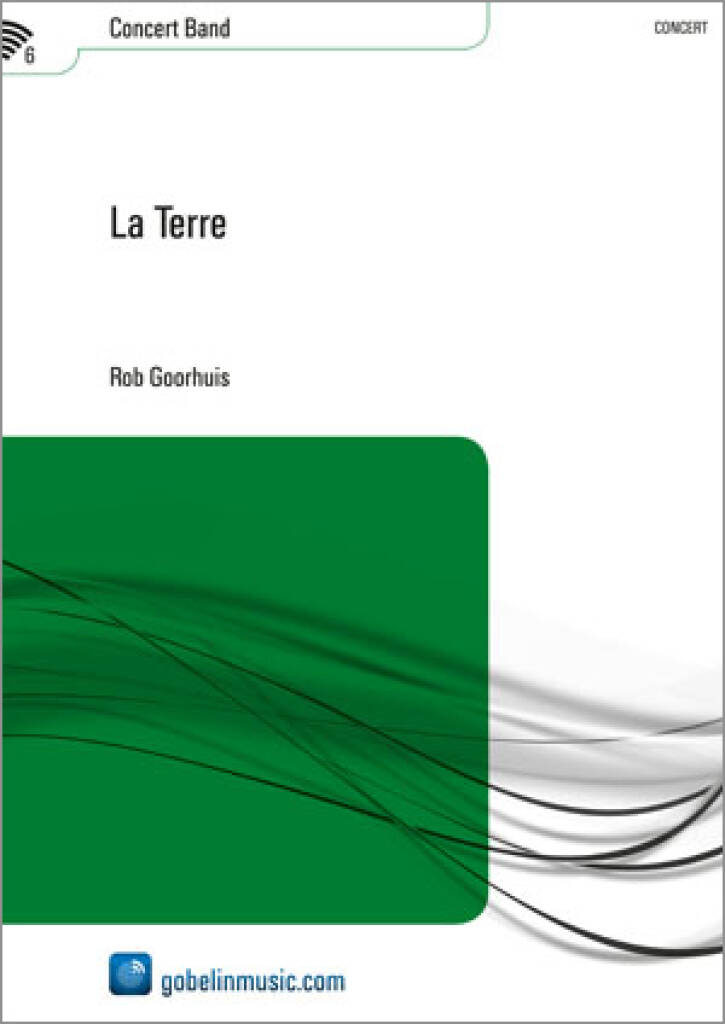 £209.99
£209.99La Terre - Rob Goorhuis
In the composition 'La terre' several aspects of Earth have been translated into sounds in an associative manner. The first part depicts Nature, Mother Earth, stability, the soil which is the source of life. Earth symbolizes tradition, rituals, fertility. In the music of the composition this can be heard in tonic and ostinato passages. Furthermore, human emotions such as gladness, sorrow, wonder, resignation, hope and despair, indissolubly connected as they are to mankind's life on earth, are musically reflected in sudden gusts of expression. Earth for us human beings is the solid ground on which everything in life takes place. In the second part different moodsare evoked in a sort of toccata. Now and then the music sounds fragmented, at other times as a solid whole. The robustness of the music in this part has its roots in the earth, originates from it. It reflects stability and strength, but love and nostalgia are also present in soft and fragile tones. 'La terre' is a musical narrative about Earth, in which music has been given ample room to show its many-sided beauty.
Estimated dispatch 7-14 working days
-
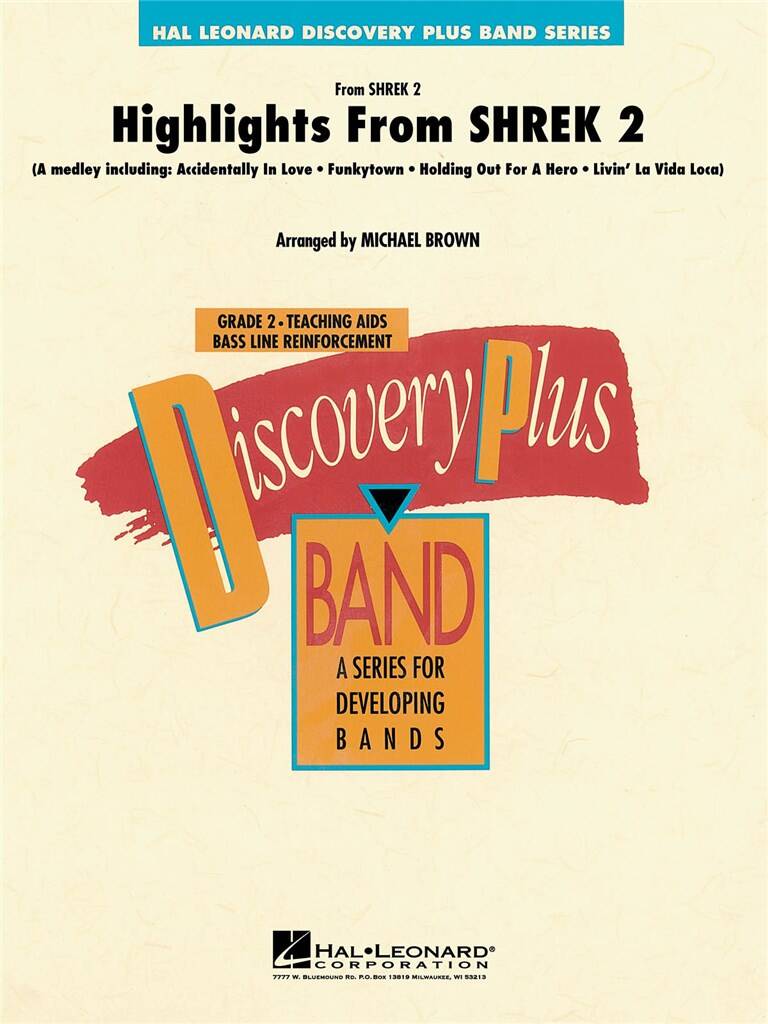 £60.99
£60.99Highlights from Shrek 2
Discovery Plus - Grade 2 The eagerly awaited sequel to the wildly popular first Shrek movie is finally here! As expected, the pop-driven soundtrack is just as energetic and enjoyable as the original. This medley of hits includes:Funkytown, Livin' La Vida Loca, Holding Out for a Hero and Accidentally in Love.
Estimated dispatch 7-14 working days
-
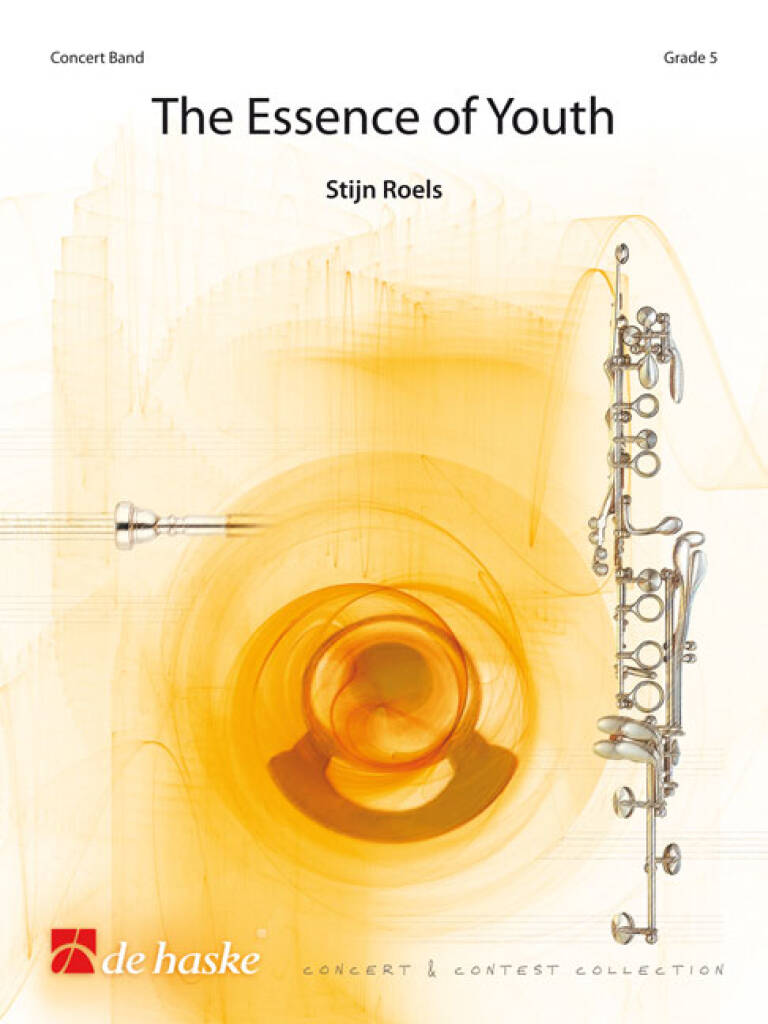 £179.99
£179.99The Essence of Youth - Stijn Roels
In The Essence of Youth the composer gives an insight into childhood and youth -- inspired by his own daughter. The opening of sparking rhythms, dynamic contrasts and changes of time signature paint a vivid picture of the unpredictability of children. The first and second movements recount the love -- and also tension and the worries -- in the adult-child bond, through dissonant harmonies but also pretty melodies. The fugue-like ending leads to a final splendid chorale: a picture of proud parents with their child!
Estimated dispatch 7-14 working days
-
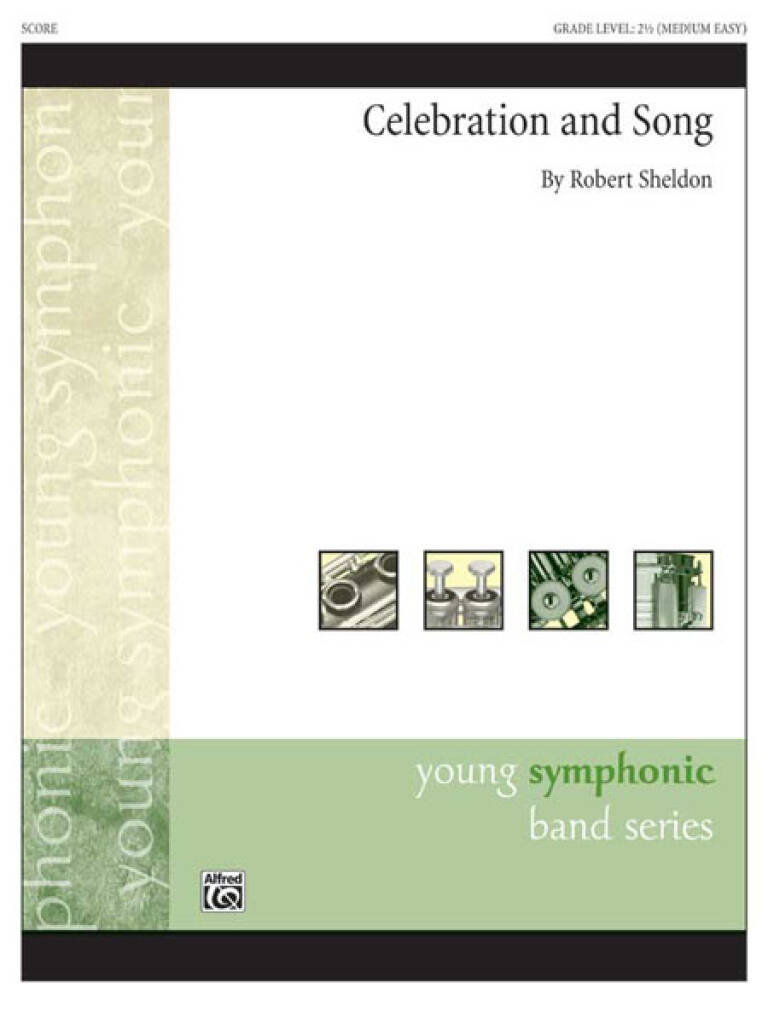 £73.50
£73.50Celebration and Song - Robert Sheldon
With a rhythmic drive and tuneful melody, this concert overture engages the listener from the first measure. Colorful scoring and tasteful percussion bring the opening section to life. The plaintive lyrical section follows, featuring a short alto saxophone solo echoed in the brass. A return to the original theme brings the piece to a close with a rousing high-energy conclusion. A great transition to high school literature that your students and audience are sure to love!
Estimated dispatch 7-14 working days
